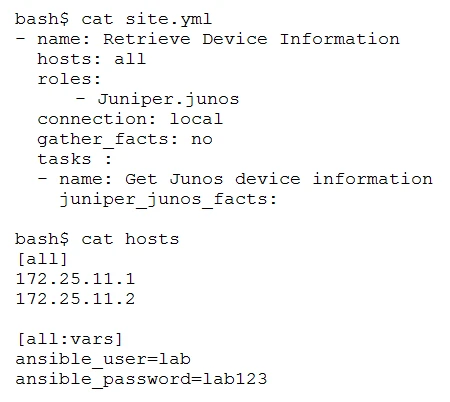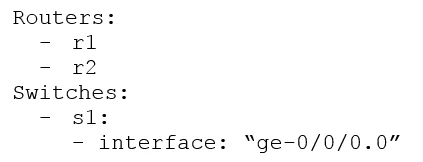The suggested answer is A.
The correct JSON representation of the given YAML document should maintain the structure accurately. JSON is case-sensitive, so 'Routers' must be represented exactly as is, and not as 'routers'. Additionally, the switch 's1' under 'Switches' should be correctly represented as an object within an array since it's a key-value pair. Therefore, the correct JSON representation would be: {"Routers":["r1","r2"],"Switches":[{"s1":[{"interface":"ge-0/0/0.0"}]}]}



